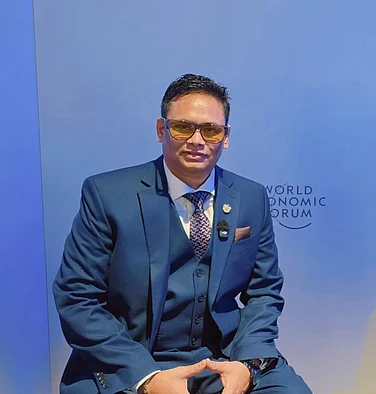Vikas Mendhe is a well-known software development expert with over 20 years of experience, specializing in FinTech & digital transformation. Currently a Senior Consultant and Solution Architect for the Office of the Texas Governor, he has led projects that have significantly improved public services. His work on initiatives like the Texas Small Business Credit Initiative (TSBCI) and the Texas Travel Industry Grant Program (TTIR) has shown his ability to bring innovative, tech-driven solutions to government programs.
Mr. Mendhe’s work on the TSBCI and TTIR project, which simplified complex processes through advanced technology, has been especially praised. Mr. Mendhe pioneered an innovative core framework to address the dynamic requirements of government initiatives. The framework has facilitated the digital processing of over 200,000 documents and supported the distribution of over $145 million in financial incentives. This framework empowers government entities to rapidly adapt to new requirements, launch programs efficiently, and respond to evolving public needs in a timely manner.
Mr. Mendhe is also a thought leader in the tech industry. As a Fellow of the British Computer Society, and an IEEE Senior Member, he has made significant scholarly contributions. His published articles on fintech, cybersecurity, cloud computing and machine learning reflect deep knowledge, with many of his papers available on Google Scholar and ResearchGate. As a member of Forbes Technology Council, Mr. Mendhe has shared his insights on leveraging technology to solve complex problems.
What do you find most rewarding about working for TSBCI and TTIR Projects?
Working on the Texas Small Business Credit Initiative (TSBCI) and the Texas Travel Industry Recovery (TTIR) projects have been incredibly fulfilling because of the meaningful impact they have on local communities. Through TSBCI, increased access to capital empowers small businesses, driving job creation and economic growth across Texas. Likewise, the TTIR program played a vital role in revitalizing the travel and tourism sectors, offering essential support to businesses recovering from pandemic challenges. Being part of these initiatives allows me to witness tangible improvements in the lives of entrepreneurs and communities, reinforcing my commitment to public service and economic development.
How do you see artificial intelligence shaping the future of financial services, and what specific contributions are you hoping to make in this space?
Artificial intelligence is set to redefine financial services by making processes more efficient, personalized, and secure. I see AI driving advancements in areas like predictive analytics, where financial institutions can better understand customer needs and offer tailored solutions. My goal is to contribute by developing AI solutions that simplify complex financial processes. I hope to play a role in shaping a more inclusive, secure, and efficient financial future.
What do you see as the biggest obstacle to implementing machine learning and AI solutions in the public sector?
The biggest obstacle to implementing machine learning and AI in the public sector is the challenge of data accessibility and privacy. Public sector data often contains sensitive information, and ensuring privacy while creating effective AI models requires strict data protection standards, which can slow down implementation. Additionally, public institutions may have legacy systems that are not designed for seamless integration with modern AI solutions, creating technical hurdles.
Can you tell us about your experience as an author and researcher?
I have published an article in Forbes Technology Council titled "Integrating ECBSV and ID Document Verification for Effective Fraud Mitigation." Additionally, I have written extensively on topics like integrating algorithmic decision-making into small business credit initiatives, microservice architecture, cybersecurity, and a comparative analysis of machine learning models for credit scoring. Each of these pieces highlights my focus on applying advanced technologies to enhance security, streamline processes, and improve decision-making in the financial sector.
How have your efforts positively impacted the organizations you've been a part of?
My contributions have been highly valued within our company, leading to my assignment with some of our most prestigious clients, including The Governor’s Office of the State of Texas, Wells Fargo, Caliber Home Loans, and Dell Technologies. My strengths in understanding complex client requirements, designing effective solutions, and delivering exceptional service have established me as an integral team member. Through my work, I am helping shape the industry by developing some of its most technologically advanced solutions.
What fuels your ongoing commitment to achieving excellence?
My continuous pursuit of excellence is driven by a deep commitment to making a meaningful impact through technology. I’m motivated by the potential to create solutions that not only solve complex problems but also make a positive difference in people’s lives. Staying curious, setting high standards, and embracing challenges keep me on a path of constant growth, always striving to improve and contribute more effectively.
What are your future goals?
My future goals center around driving technology advancements in public service and finance, specifically through exploring the transformative potential of blockchain, artificial intelligence, and machine learning. I am committed to innovating solutions that address critical needs in these sectors while ensuring a sustainable, impactful legacy through mentorship. This blend of professional excellence, industry influence, and dedication to mentoring underlines my long-term vision of making technology-driven solutions accessible and impactful across government and financial domains.


























